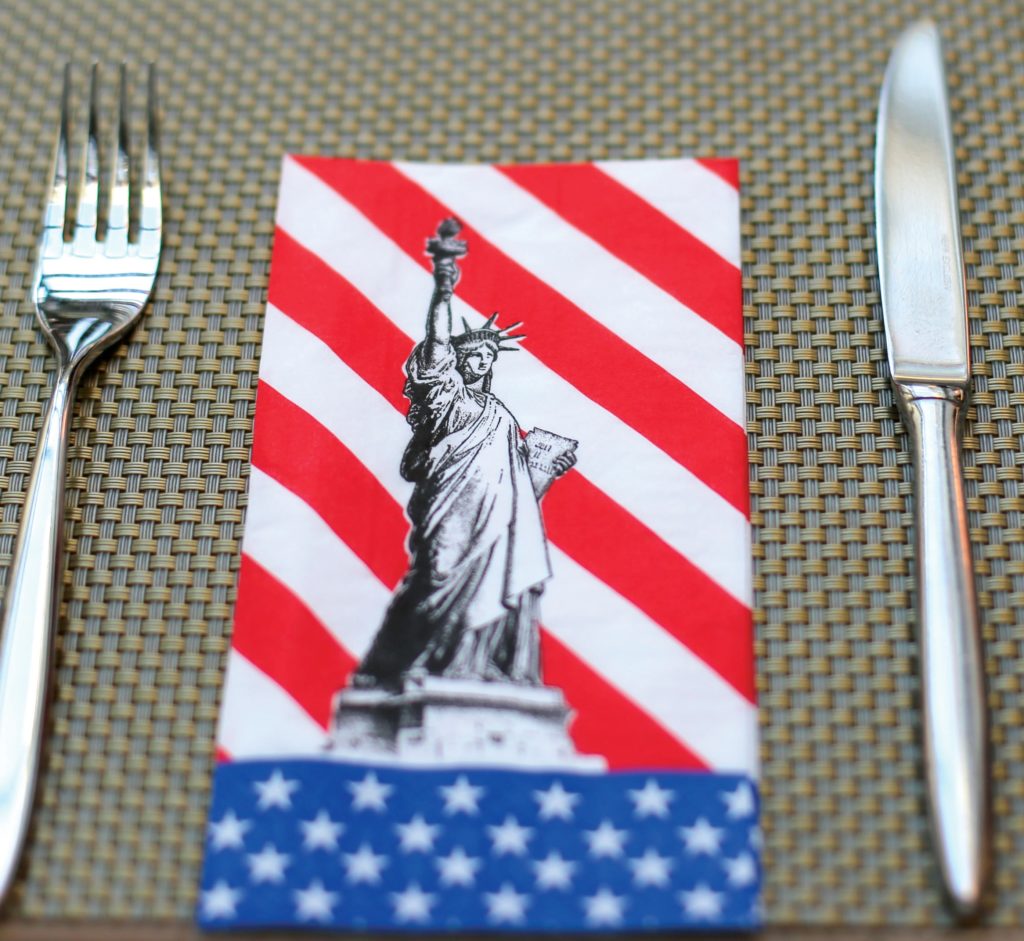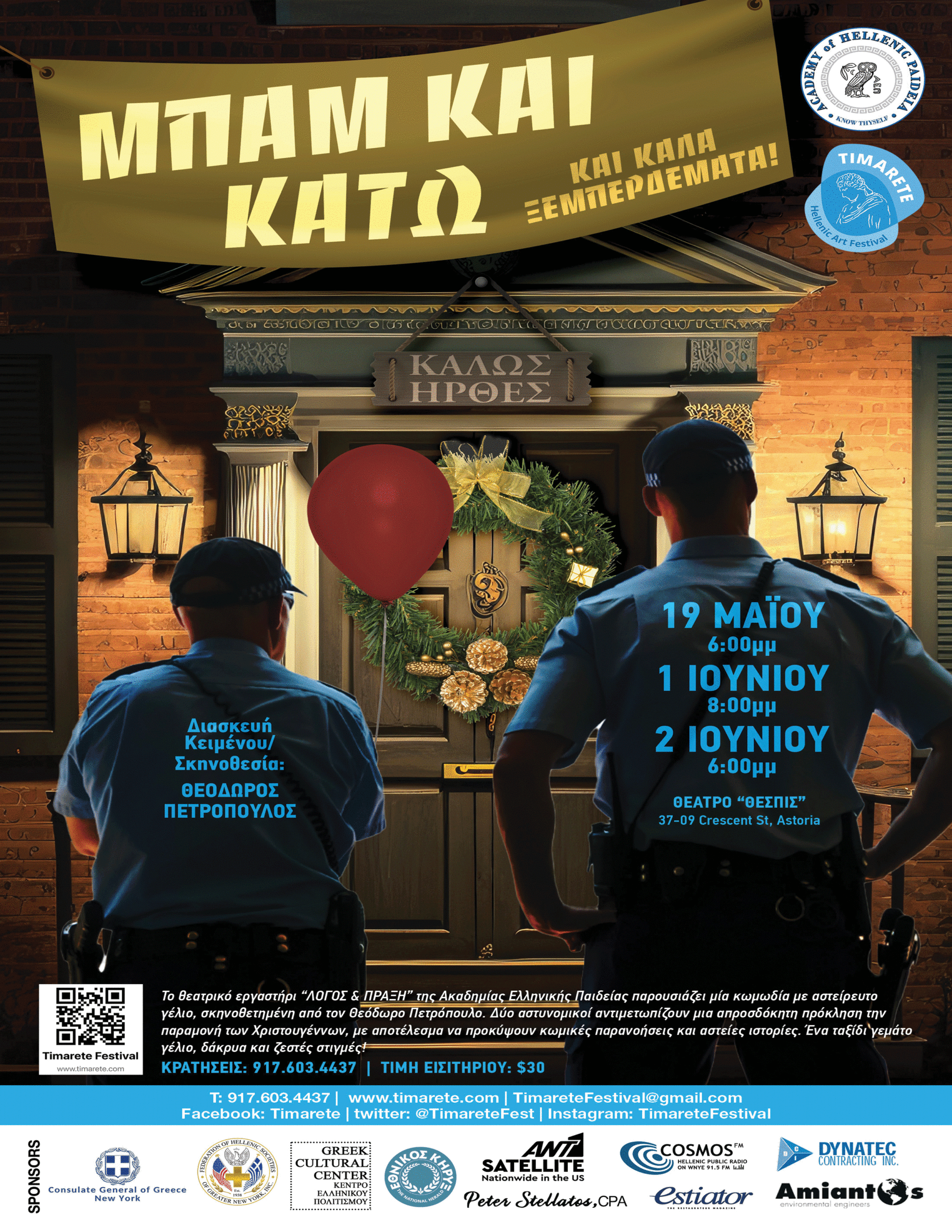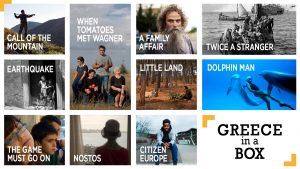American by Choice
Posted by estiator at 10 July, at 03 : 43 AM Print
COVER STORY
A multigenerational look at Greek immigration through three lenses.
By Constantine N. Kolitsas

Every great power has relied on immigrant labor to do the hard work upon which its prosperity was built. This has been true since the time of the Egyptians, if not longer. In modern times, that immigration came not as a result of vanquished civilizations brought in servitude but as a choice of the individuals who decided to leave their homelands in search of a better future for themselves and their children. Being born an American may be a blessing, but becoming an American by choice somehow has a special profound meaning that perhaps only another immigrant can truly appreciate.
As we celebrate the 245th anniversary of the birth of this great nation, Estiator takes a multigenerational look at three individuals whose immigrant stories reflect those of our community.
Nick Kolitsas, 1955
Nick Kolitsas, my father, is 86 years old and doesn’t hesitate to share that fact with any stranger he meets. He has lived here in the United States for 65 of those years (more than 50 as a U.S. citizen), having immigrated in the decade following the end of the German occupation of Greece and the ensuing Greek Civil War. His story is told here not only because I know it intimately but because it has inspired me from childhood.
Like others of his generation, my father left Greece to find opportunity. On his island home of Andros, he lived about 200 yards from the Aegean in what remains one of the most idyllic vistas I have ever experienced. But for its beauty, Andros was a place of poverty in those years. The second of five brothers and one sister, he worked from a teen as a fisherman, helping to provide for his family. With enough money to send just one of his children to high school, my grandfather sent his middle son, John, leaving my father and his other siblings no chance of a higher education. As a result, as with so many others, he joined the Greek Merchant Marines with the plan to “jump ship” when the boat reached America. But before leaving, his father put 12 gold lyras in his hand, telling him to spend them in Greece.
“Enjoy yourself before you leave,” he told him. “You will always make more money; you’re leaving your country and you’ll miss it, so enjoy as much of it as you can before you go.”
After about seven months at sea, his ship reached the small port of Trenton, NJ. It was the hottest day in July, and the totality of his possessions amounted to four sweaters his mother had made him and an overcoat. Not wanting to leave them behind, he layered each one over the other and walked off the boat. Once he was a safe distance from the ship, he walked into a pharmacy and purchased a newspaper and a dictionary, telling himself, “I’m never going back, so I’d better learn this language.” For his first meal, he walked into a diner and sat at the counter. When the person next to him ordered apple pie and coffee, he mimicked the order, and he insists (probably for effect) that for the next five days all he ate was “apple pie and coffee.”
Like many other immigrants, he found himself completely on his own. His father had a brother who had emigrated to the States decades earlier, and he made contact with him. But for finding him a dishwasher job, there was no other form of support forthcoming, monetary or emotional. If he saw him a half dozen times, it was a lot. But his uncle did one thing that made a tremendous difference: There were no Greeks working in that first restaurant. “If you work with Greeks, you’ll never learn English,” he told him.
After just a couple of weeks, the chef at the restaurant promoted him to chef’s helper. For the next six months, he learned a great deal from his mentor, until one day he was pulled aside and told to find another job. “You’re smart and talented,” the chef told him. “I want you to go and work with another good chef, and I want you to change jobs every three to six months. If you do this, you’ll be a chef in two years.” And so, he made it a point to research the chefs and the restaurants that would help him develop his craft. Working in Manhattan for French chefs and German chefs, he received his culinary education. In short order, he had developed a reputation and was in demand as a chef in his own right. And within five years, he and his best friend started their own business—a luncheonette across a busy factory in Paterson, NJ, which was a huge success until the factory closed down a few years later.
His career fluctuated over the decades, sometimes working as a chef, and sometimes as a chef/owner, ending more than 40 years after it had begun, as the owner of an upscale Italian restaurant in Putnam County, NY. Retired for more than two decades, he is a man content with his choices and his accomplishments, grateful to the country that gave him the opportunity to be his best self.
Savvas Tsiattalos, 1978
The 1974 invasion of Cyprus by Turkey was the catalyst that brought Savvas Tsiattalos to the United States. Savvas was born in the coastal town of Paphos and raised for the most part in the since-divided capital of Nicosia. Although not among the 150,000 Greek Cypriots who were directly displaced from their homes, Tsiattalos’s family suffered severe economic repercussions from the invasion.
“I came from a very poor family,” says Tsiattalos, the son of a mine worker. At the time of the invasion, his father had put all of his savings into a down payment for a home for his soon-tobe-wed daughter and, with it, took on a mortgage.
“When the Turks invaded, they took the area where the home was, so we lost that home, but my father still had the loan to repay,” he says. As the only son and sibling to three sisters, it fell on him to help his family to overcome the incredible debt burden. And so, at the age of 21, he left Cyprus to find work.
“In those years, it was a divided world,” says Tsiattalos, referring to the Cold War between the U.S. and the Soviet Union and the Cyprus’s non-alignment policy in the decades-long lead-up to the invasion.
“Some people favored the USSR, but all my life I liked America.”
Like many young people his age, his plan from childhood was to go to Greece to study. But with his family facing dire economic hardship, he decided that the United States offered greater opportunities.
“I knew I could work in the U.S.,” he says. “And so, with $400 in my pocket, I went to America.”
Along with him was the address of an old friend from the army. Unannounced, and not knowing if anyone would be there, he took a taxi to 44 30th Avenue in Astoria. When an elderly woman came to the window he simply said, “I’m a Greek from Cyprus; is George here?”
Two days later he was bussing tables at a restaurant and making $100 per week, a sum that would take him a month to make back home.
Originally accepted into a university in Ohio, he decided to stay on in New York because he saw that he could work and send money home and at the same time pay for school. So he enrolled into City University and, after working all day in the restaurants, took night classes until he graduated with a degree in business administration.
In those years he worked for a man from Chios who owned a small group of restaurants named Burger Heaven. “He helped me a lot,” says Tsiatallos. “He encouraged me to go to school and helped me to learn the system.”
In 1984, he was 25 years old and had been in the U.S. for just five years when a friend helped him to secure a contract for a coffee shop in one of New York City’s hospitals. In short time, he grew to three locations in three hospitals. And the coffee shops expanded into full-fledged diners, one of which operates 20 hours per day. In two of those hospitals, he has been given the gift shop concessions as well.
Today, Savvas is 63 years old, with five children and four grandchildren. Remembering his roots, he opened a hotel in Nicosia over 15 years ago to support the local economy and his family that remained on the island. And while active in the daily operations of his New York-based businesses, he has found his personal heaven on a small farm he acquired eight years ago in Pennsylvania, where he spends most of his weekends. “It brings me back to my youth,” he says. “We have donkeys, goats, chickens. My children and grandchildren spend time here with me, connecting to nature, very much like my own childhood in Cyprus.”
Christos Bisiotis, 2007
In 2007 there was not a country on the planet that was not impacted by the global financial crisis. Greece, of course, would be among the countries most harshly impacted, suffering the longest recession of any advanced economy in modern times. Hundreds of thousands of highly educated Greeks left the country at the time. And with that exodus was Christos Bisiotis.

Bisiotis had spent his childhood working in restaurants. At the age of 11, he was exposed to the thrill of the kitchen when doing a delivery for his family’s bakery. “I opened the kitchen door and the noise and yelling and screaming got me excited,” he says. “I knew right away that I really wanted to work there.” The following day he returned, begging the chef for a job as a dishwasher. By the week’s end, he was receiving deliveries and doing prep work. “Eventually I worked the salad station, and by age 14 I was holding down the grill position by myself,” he says. So when he arrived in the United States on Christmas Day in 2007 (he chose the date because of the cheap airfare), he had amassed significant experience as a line cook and sous chef.
“When I came, I had just one week’s wages in my pocket,” he says. And, not wanting to squander it on a hotel, he slept outside in Astoria Park, in the dead of winter. “I had no family, no friends, no contacts in America,” he says, but he knew that the United States was where he belonged.
When he awoke on Christmas morning, he had a fever of 102.
“A police officer asked me what I was doing; he found me sleeping in the park. And I suppose he saw that I was a clean-cut kid, not a drug addict,” he says, “so he just had me move along.”
As he wandered, he came across a Greek man and told him his story. The man, known only to him by the name Bobby, owned a building that had a small apartment located in a basement.
“It had a bed, a shower and a small kitchen,” Bisiotis remembers. “He told me, ‘Don’t worry about paying me; go out and find a job, and when you have money you can pay something.’”
Bisiotis stayed there for two months rent-free, clipping Burger King buy-one-getone-free coupons to get by. “I never saw Bobby again,” he says, acknowledging the debt he owes. “I’ve looked for him and have never been able to find him or anyone who knows him.”
Within two weeks of arriving, Bisiotis had found employment and worked in kitchens in New York, honing his craft. Eventually he ended up working for celebrity chef Mario Batali. “Mario taught me to truly love cooking,” says Bisiotis. “Working for him, I learned to appreciate the things I had taken for granted. He helped me to become a better chef professionally, and a better person.”
At the same time that he was working with the Eataly founder, Bisiotis was invited to cook for the Obama family at the White House. He soon became a regular fixture there, while also cooking for events for Congress. Later, after leaving Batali’s organization (he had reached the position of chef de cuisine at the original Eataly), Bisiotis headed to the Avra Group, where he held various posts, including serving as opening chef at the restaurant’s Beverly Hills outpost. Bisiotis also served as executive chef of Estiatorio Milos (Hudson Yards).
When the pandemic hit, Bisiotis decided to finally leave New York for Miami. He is there today, directing the fresh pasta program for famed chef Mario Carbone’s eponymously named Italian concept.
Asked if he sees himself someday returning to Greece, Bisiotis replies in the negative, blaming what he insists is his native country’s corrupt political establishment.
“The United States is the best country in the world,” he says. “I may have been born a Greek, but I will die an American.”



















